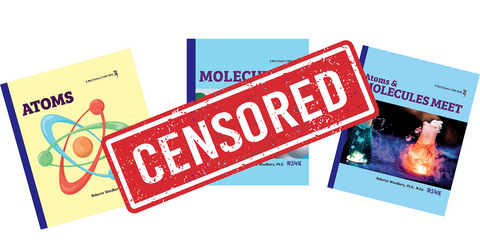Most people don't think they need to know about atomic theory, and most of the time they don't. However, there are situations where some foundational knowledge could mean the difference between life and death, as tragically demonstrated by the story of Rush Stockton and the passengers on the Titan.
Stockton, in his quest for innovation, made a fatal decision by focusing solely on the properties of matter. He chose carbon fiber to construct his vessel, attracted by its perceived "strength" and favorable "weight-to-buoyancy" ratio. These characteristics are indeed significant properties of matter, with carbon fiber often celebrated for its high tensile strength and low weight. However, Stockton's focus on these macroscopic properties led him to ignore critical differences at the molecular level—specifically, the nature of covalent and metallic bonds and their behavior under high pressure.
Covalent bonds, which hold carbon fiber together, are strong but rigid. Under intense pressure, these bonds can break, causing the material to lose its molecular integrity and resulting in fractures. On the other hand, metallic bonds, found in materials like titanium, are more fluid. They allow atoms to rearrange themselves under pressure, maintaining the material's structural integrity and strength even in extreme conditions.
By failing to consider these fundamental differences, Stockton did not foresee the catastrophic failure of carbon fiber in the high-pressure environment of the ocean depths. This oversight was not just his alone; none of his passengers possessed enough understanding of the importance of atomic-molecular theory to question his choices. They trusted that the apparent properties of matter would ensure their safety, a trust that was tragically misplaced.
The underlying issue is the gap in our education system: atomic-molecular theory is a core principle that is misrepresented in the early grades and most students don't learn it in high school. Early science education focuses on broader properties of matter without delving into the atomic and molecular structures that govern these properties. As a result, many adults, including Stockton's passengers, lack the deeper understanding required to make informed decisions about material safety in extreme conditions.
Stockton's story underscores the necessity of a comprehensive science education that integrates atomic-molecular theory from an early age. Understanding these fundamental principles is crucial, not just for scientists and engineers, but for everyone. A well-rounded education could empower individuals to ask the right questions and make informed decisions, potentially averting future tragedies.
Stockton’s fatal oversight highlights the critical need for a more robust science education that includes atomic-molecular theory from the start. By ensuring that this knowledge is part of the elementary curriculum, we can better prepare future generations to understand the complexities of material behavior and make safer, more informed decisions.





Comments (0)
There are no comments for this article. Be the first one to leave a message!